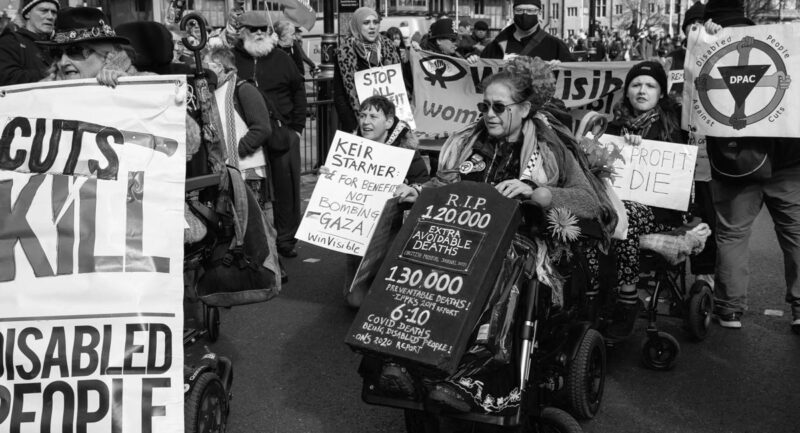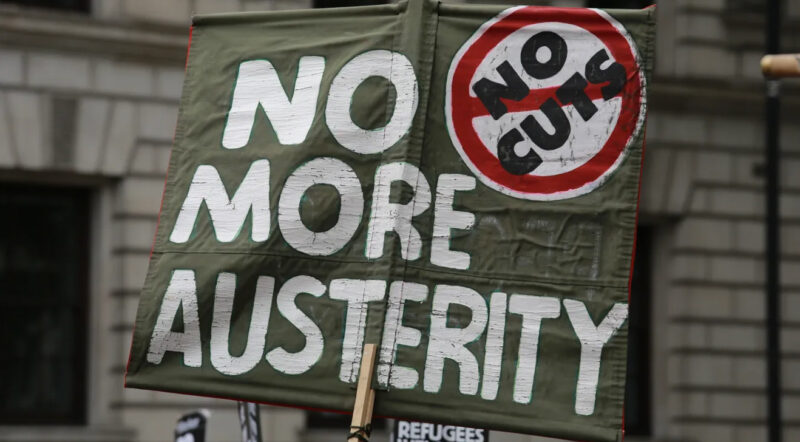Regimes and West plot to crush Arab revolt
 Every revolution is at some stage confronted by a counter-revolutionary struggle. Egypt’s Mubarak and Tunisia’s Ben Ali may have been caught by surprise but the other Arab rulers were forewarned and forearmed in the event that their people rose up too. Marcus Halaby takes an analytical view
Every revolution is at some stage confronted by a counter-revolutionary struggle. Egypt’s Mubarak and Tunisia’s Ben Ali may have been caught by surprise but the other Arab rulers were forewarned and forearmed in the event that their people rose up too. Marcus Halaby takes an analytical view
Across the Arab world the regimes have begun a process – sometimes coordinated – aimed at demobilising the masses who are roused to political life. This has involved differing combinations of brute force and concessions intended to split and confuse the opposition.
The imperialist powers, initially caught wrong footed by events, have rushed to pose as the champions of democratic reform all along. NATO’s ‘humanitarian’ military intervention in Libya, and the ‘aid’ package that Barack Obama and David Cameron have promised are aimed at promoting two forms of counter-revolution, a “democratic” one in Tunisia and Egypt and a dictatorial one in Bahrain.
Egypt
In Egypt, the epicentre of the Arab revolution, the new military regime successfully achieved a “yes” vote in a recent constitutional referendum. Under the guise of reforming the powers of the Presidency and allowing the legal formation of new political parties, the planned constitutional changes in fact overwhelmingly privilege Mubarak’s re-branded National Democratic Party, as well as the opposition Muslim Brotherhood, currently angling for a junior role in the next government.
In the meantime, Nasser-era laws prohibiting political parties that promote “class hatred” remain in force, while the army – still trading on its reputation as having “defended the people” from Mubarak’s thugs in February – has been sent to attack demonstrations, including a massive protest outside the Israeli embassy in Cairo to mark Nakba Day, the anniversary of Israel’s mass expulsion of the Palestinian people.
The naked face of reaction in Egypt has been shown by ultra-conservative Salafist Islamists, who have attacked the Christian minority across the country, burning two churches in Cairo’s Imbaba suburb and killing 15 in early May.
Even so, the emerging workers’ movement – based on new, independent trade unions – continues to organise its forces, with representatives of five socialist organisations meeting to discuss the formation of a workers’ party to contest the planned parliamentary elections.
Syria
In Syria, by contrast, the uprising is now into its third month, facing a regime that has killed 1,062 people and arrested about ten thousand, according to Ammar Qarabi of the National Organization for Human Rights in Syria.
The government, having failed to completely crush the uprising, has nevertheless managed to confine it to the smaller towns and deprived rural areas, and is now threatening to split it. The merest threat of political strikes in Aleppo, Syria’s second-largest city, forced the Ba’ath regime to order private employers there to raise wages and hire new workers – and this in a country with a massive state sector.
President Bashar al-Assad’s promise of a “national dialogue” was answered by Razan Zeitouneh, the woman lawyer who has become a spokesperson for the opposition, who rejected any dialogue before “all violence is stopped and all political prisoners are released”.
Libya
Libya’s revolution, however, has been complicated massively by the NATO military intervention. Now the danger of counter–revolution comes from two sides. Gaddafi might yet physically liquidate the uprising, at the very least within a shrunken rump state around his base in the capital, Tripoli. The result would be a permanent partition of the country, with two Libyan governments each competing with the other for the favours of the imperialist states and their multinational corporations.
On the other side, the EU and US imperialists are using their military involvement to re-establish and safeguard their vital interests in the rebel-held areas in the east of the country. In return for their aid they will exact from the Libyan rebels a huge political and economic price: recognition of all the oil exploration and other commercial contracts that Libya entered into under Gaddafi.
Gaddafi’s former interior minister Abdul Fatah Younis now heads the Libyan rebels’ armed forces, alongside and in rivalry with former Libyan officer and CIA stooge Khalifa Belqasim Haftar. Similarly Gaddafi’s former justice minister Mustafa Abdul Jalil has been identified as chairman of the rebels’ National Transitional Council, while Mahmoud Jibril, the neo-liberal privatiser who formerly headed Gaddafi’s National Economic Development Board, was appointed interim Prime Minister.
Veteran opposition figures, like Abdul Hafiz Ghoga, the lawyer who represented the families of the victims of the 1996 Abu Salim prison massacre, have been sidelined in the rush to acquire imperialist recognition and support.
So far, only France, Italy, Qatar, Kuwait, and Jordan have officially recognised the National Transitional Council as Libya’s sole legitimate government. The Council was not even represented at an international conference on Libya held in the Qatari capital Doha in mid-April, although it was attended by Moussa Koussa, Gaddafi’s former intelligence chief who resigned as Libyan foreign minister only two weeks previously.
The only hope for the youth, the teachers, the rank and file soldiers who made the revolution, who are fighting in Misrata, to gain real democracy and use the countries national wealth for its people, is to oust the pro-imperialist leadership and replace it with one based on the workers and the freedom fighters.
Bahrain
The ‘humanitarian’ gloss given to the West’s debilitating support for the Libyan rebels seems especially two-faced when set against their apparent indifference to the bloody repression being meted out to protesters in Bahrain, a tiny Arab Gulf state that plays host to the US Fifth Fleet. In fact, Obama’s green light to Saudi Arabia to lead an invasion by the states of the Gulf Cooperation Council was a quid pro quo for the absence of any serious opposition to Western intervention in Libya.
Now, the ruling Al Khalifa dynasty is getting its revenge. In a blatant display of poisonous religious sectarianism against the country’s disenfranchised Shi’a majority, the Bahraini government has demolished dozens of Shi’a mosques, removed Shi’a professors from their posts and forced the resignation of Shi’a members of parliament. All of this in a bid to demonstrate to the West – and to the reactionary Arab Gulf states that helped the Bahraini monarchy to put down the uprising – that the real force behind the uprising was Shi’a Iran, which remains one of the most important of US imperialism and Arab reaction’s officially sanctioned bogeymen.
However, one should not expect to hear too many protests from Western governments about the torture, imprisonment and death sentences meted out to Bahrain’s pro-democracy activists.
The working class
The underlying reason for strength of the counter-revolution is that in Syria, Libya and Bahrain, the working class has so far not thrown its weight of numbers and social power into the balance, leaving the regimes free to battle with the insurgents on their own terms – through the use of force – held in check only by the revolutionaries’ determination and capacity for self-sacrifice.
In Egypt and Tunisia, by contrast, it was mass strikes that forced the regimes to throw their hated leaders overboard. But the working class has not yet asserted its political independence, in the form of a working-class movement, led by a revolutionary workers’ party capable of presenting a project of its own in competition with the calls for a mere democratic reform that leaves intact the structure of political power – and with it, deeply unequal relations between the classes.
Time for a second revolution
Still, a start has been made in Egypt. A “second day of rage” on 27 May has demanded a “second revolution”, in which a civilian government would oversee elections instead of the military junta, and in which Mubarak’s officials would be tried and punished for the deaths of the 840 people killed during the uprising in January and February.
Tens of thousands of protesters in Tahrir Square carried banners declaring: “The Egyptian revolution is not over” and demanding a new constitution before the calling of elections. Other demonstrations took place in Alexandria, Egypt’s second-largest city, and in the industrial and commercial cities of Suez, Port Said and Ismailia, as well as in Upper Egypt and the Nile delta.
And it is now the Muslim Brotherhood – whose support for the first” revolution was lukewarm and compromised to begin with – that stands directly against this movement, with its former legislator Sobhi Saleh condemning the demonstrations outright and standing with the Supreme Council of the Armed Forces in declaring that the peoples’ anger is misdirected and can only mean that they are angry “at the people themselves or at the army”.






